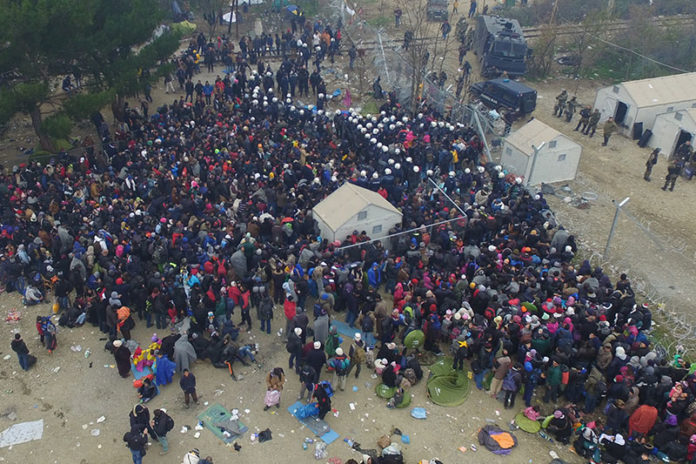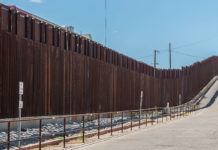An alarming number of migrants from a south Asian Islamic country that’s well known as a terrorism hotbed are trying to enter the United States through the Mexican border in Texas, according to government figures obtained by Judicial Watch.
For the second consecutive year U.S. Customs and Border Protection (CPB) stats show that the Laredo Border Patrol Sector is the favorite crossing point into the U.S. for illegal immigrants from Bangladesh, a recruiting ground for terrorist groups such as the Islamic State of Iraq and Syria (ISIS) and Al-Qaeda Indian Subcontinent (AQIS).
The Laredo Sector continues to a have the highest apprehension of Bangladeshi nationals compared to the country’s other Border Patrol sectors, CPB announced recently. At the time 171 Bangladeshi nationals had been arrested since the start of fiscal year 2018. A few weeks later, the agency revealed that it apprehended an additional nine Bangladeshi nationals trying to sneak into the U.S. through Laredo.
“The subjects were encountered after illegally crossing the Rio Grande River in south Laredo,” CPB writes in a press release, adding that “the Laredo Sector Border Patrol continues to have the highest apprehension of Bangladeshi Nationals compared to other Border Patrol Sectors.” At last count, the figure has increased to 209 this year and growing, according to federal law enforcement sources in the region. There’s no telling how many have slipped in.
Back in 2016 the State Department warned of a “significant increase in terrorist activity” in Bangladesh, most notably carried out by ISIS and AQIS. That year ISIS claimed responsibility for 18 attacks in Bangladesh, including a July 1 attack on a restaurant in Dhaka’s diplomatic enclave, which killed 22 people. The terrorists spared hostages who could demonstrate that they were Muslim by reciting verses from the Koran, according to the State Department.
“The other attacks were generally machete attacks on individuals from minority groups or law enforcement entities,” the agency said. Earlier this year the Treasury Office of Foreign Asset Control (OFAC) added ISIS-Bangladesh to its sanctions list by inserting the group in the government’s growing Counter Terrorism Designations list. It is part of a broader government plan to defeat ISIS by, among other things, denying access to the U.S. financial system.
A multitude of news and academic reports have also documented the growing terrorism threat in Bangladesh. The country has a large amount of Islamist violence, according to a report published by the Combating Terrorism Center at West Point, and is plagued by illicit financial transfers typically used by terrorist groups.
“It is suspected that militants regularly tap into these illegal money flows to fund their operations,” the report states. “More than $1 billion in taxable goods is smuggled into the country from India, and analysts believe that some of this money ends up in the hands of terrorist groups. This is also the case with small arms sales, drugs and counterfeit U.S. dollars that enter Bangladesh from neighboring Myanmar and the Golden Triangle.” Last year a Bangladeshi man (Akayed Ullah) in the U.S. with a chain migration family visa tried to detonate a pipe bomb in a crowded New York subway corridor.
A growing number of illegal aliens from terrorist nations—including Pakistan, Afghanistan and Bangladesh—have tried to enter the U.S. through Mexico in the last few years. In 2015 Judicial Watch reported that dozens of them were held in a Texas Immigration and Customs Enforcement (ICE) processing center after entering the U.S. illegally through Mexico.
One of the detainees who is a national of Bangladesh said he arrived in El Paso after traveling from South American to Juarez, Mexico. At the time, the U.S. had just issued a terrorism alert warning that militants in Bangladesh may be targeting westerners. Years ago, Judicial Watch also reported that Mexican drug cartels are smuggling foreigners from countries with terrorist links into a small Texas rural town near El Paso. The foreigners are classified as Special Interest Aliens (SIA) by the U.S. government.






























